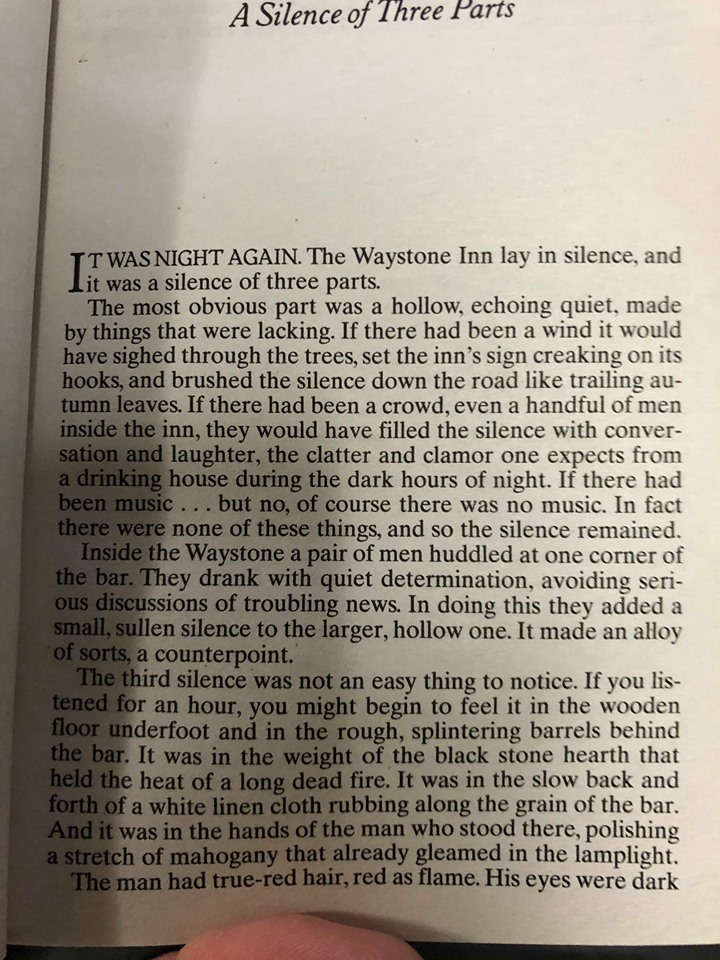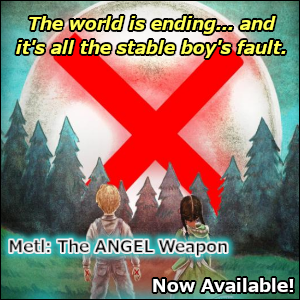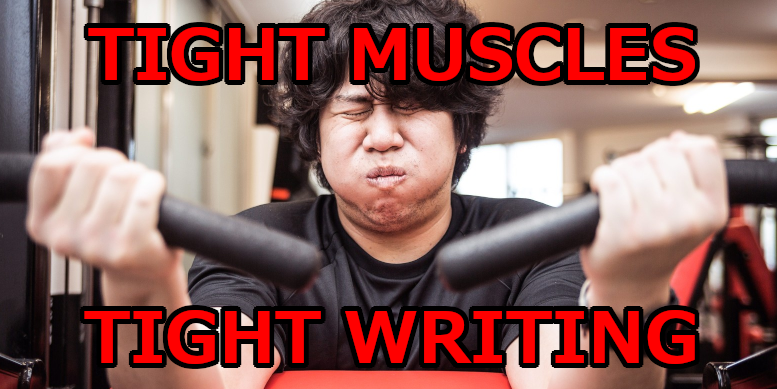What is “tight writing” and how do you do it?
Let’s discuss together, look at examples of the tons of fat I’ve trimmed from my own writing, then practice on some generous donors!
During the last stream, a subscriber requested that we go over “how to edit your writing to be tight.”
You can watch the full video here to or scroll down for notes/highlights.
How to Edit Your Writing to be “Tight”
- One of the goals of editing your completed story is to make the writing tighter
- Note: You should NOT worry about “writing” tight, only “editing” tight once the story is complete, because otherwise you will just slow down/hinder your writing process
- Editing for “tightness” should come after you’ve already edited the story to have it make sense and have all the scenes it needs
- Tightening is all about cutting, and you shouldn’t cut until the whole story is there
What is Tight Writing?
- Tight writing is not using any more words, sentences or paragraphs than necessary to convey your story to the reader
- For example, instead of:
- “If only I’d just tried a little bit harder, then I could’ve possibly saved her.”
- You can have:
- “If only I’d tried harder, I could’ve saved her.”
- For example, instead of:
- There’s a six word difference between those two sentences, which to be fair isn’t a lot, but when stretched over a 100,000-word book, that could mean potentially cutting away 40,000 words
Why Do I Want Tight Writing?
- People often think that the best writing is flowery or uses fancy words, but that’s not true
- The best writing uses simple, efficient language to evoke vivid, specific images: which is exactly what tight writing is
- Let’s take a look at a great example of tight writing: the opening to The Name of the Wind
 Now let’s take a look at what that opening could’ve looked like if it wasn’t tight, with my additions in bold:
Now let’s take a look at what that opening could’ve looked like if it wasn’t tight, with my additions in bold:
Above in the sky, the sun had set hours ago. It faded beyond the farmhills, dragging away with it the golden glow of the wheat fields and blood-red strawberry bogs, leaving behind only gray darkness. In cadence with inhalations after exhalations, heart beats after heart bumps, and death after life, now, after the day had ended, it was night again. And as happened every night, the Waystone Inn lay in perfectly undisturbed silence, and it was a silence of three distinct parts, each one as necessary to the whole as breath, heartbeats, and life to the world.
- This “looser” version isn’t horrible, but it’s not optimal either
- It’s longer, repetitive, and distracts from the focus of the scene, instead of just being about the “silence” there’s so many other things going on that it’s harder for the reader to grasp
- Knowing that the unnecessary stuff should be cut is part of editing tightly
How Do You Edit for Tight Writing?
- The short version: it’s hard. Read a lot, write a lot, and edit other people’s work a lot to get a feel for tight writing
- Writing tight is like learning a foreign language: there are some rules you can learn, but if you just speak by trying to process a bunch of rules, you’ll sound like a robot
- It’s best to immerse yourself in tight writing, get a feel for what sounds right, so the tight writing will appear to you as you edit
The longer version: buckle in, friend, it’s gonna hurt
#1. Detach yourself emotionally from the text
- It’s impossible to edit a story that you are still entrenched in, because you would have simply written it differently if you wanted to
- So once you finish a story, take a break from it for at least a week, this will allow you to come back to it with fresher eyes, closer to an outsider
- Be ready to be merciless: your favorite lines, characters, scenes, all of them are on the potential chopping block, and you need to be ready to swing the ax if it’s for the good of the story
#2. Find the focus of the scene you’re editing
- Everything that happens in a scene should relate to the scene’s main point in some way
- For example, in the “loose” version of the opening to the Name of the Wind, it isn’t clear if the focus is on the scenery, breathing/heartbeats, silence, or something else, but cutting the extraneous stuff makes it clear
- Here’s another example from a book I’m working on, where the character sneaks back home at night:
I’m so horrified at the thought of seeing my parents again when I get home that I spend the whole bus ride trying to figure out a way to get back inside my house without having to see them. If I never had to see them again, that’d be ideal, but unfortunately I will have to make eye contact with them eventually. But the longer I can put that off for, the better. Preferably at least until I won’t feel like I’ll throw up if I see their faces.
By the time I get off the bus at my stop and get back home, I’m determined not to step through the front door. I know Mom and Dad are probably waiting there, ready with some sort of scripted speech that they want to give me, and I don’t want to hear it. The back door is off limits too; they’d just hear me open it and then be on me faster than flies on fresh compost.
So I do the only thing I can do: climb through my room window.
It’s not easy. Even though our house is only one floor, the window is still above my head. Not to mention it’s not even supposed to open from the outside, you know, to prevent people from doing exactly what I’m about to do. But I don’t care. Anything is better than seeing Mom and Dad right now.
I stare up at the thin two-inch-wide pane, crouch down, and then leap up right at it. My fingers clasp onto it, and for a second I feel like a superhero rock climber, but then I remember that I haven’t done any sort of physical exercise since elementary school, and my body turns entirely to dead weight supported only by the burning tips of my fingers.
(It goes on describing her coming in through the window for 700 more words)
During editing, I changed it to this:
I couldn’t face Mom and Dad when I came home last night. Rather than risk seeing them, I snuck in through my room window and climbed into bed, staying there all night.
The focus of the scene isn’t the details of her climbing through the window, it’s her emotion, which is as easily conveyed in two sentences rather than a hundred
#3. Put every single word on trial
- If a word is not 100% absolutely necessary in a sentence, cut it
- Some examples of common words to cut: just, only, almost, that, then, and, of, actually, in fact, of course, felt/heard/saw, repetitive the’s, etc.
- For example, instead of:
- “I almost got mad, but then I remembered that actually getting angry would only make things much worse. In fact, the anger inside of me that I felt right then, if I let it out of its cage, would just end in disaster. So of course, naturally, I did let it out. In a punch to his face.” (60 words)
- You can have:
- “Anger bubbled inside me, but I knew if I acted on it, that would only make things worse. It’d end in disaster… which is exactly why I punched him.” (30 words)
- For example, instead of:
- There are times when you do need to use those words, but make sure you use them only when necessary so they have their intended impact
#4. Being honest with your emotional reactions
- If any sentence, paragraph, or chapter…
- …doesn’t excite you, then cut it. If the section isn’t fun for you to read, then it will bore your readers.
- …isn’t relevant to the story, then cut it. If the section isn’t furthering the plot or developing a character, then why is it there?
- …isn’t necessary, then cut it. If the section repeats something that happens elsewhere, then you don’t need it.
Here’s another example from a book I’m working on, where a poor character is going to a rich party:
The bus pulls into our stop, and Kathy and I get off. I expect to see a nice neighborhood like Britney’s, maybe with bigger houses and yards. Instead, it’s just another part of downtown, with abandoned buildings rusting against the setting sun. Not exactly where I’d expect the richest kid in school to live.
“Is this the right place?” I ask Kathy.
“Obviously Randal doesn’t live here. This is just the closest the bus gets to his neighborhood. They live as far away as possible from us mangy folk that have to squirm around in buses like animals.”
I didn’t expect this. I thought we’d just be getting off right at Randal’s house. Hopefully walking the rest of the way won’t eat too much into our research time.
“Well how far is his house from here?” I ask.
“About ten miles.”
“Ten miles! By the time we get there, it’ll be over!”
Just as my head starts whirring, a long black limo pulls into the bus stop.
(It goes on describing the limo ride for 500 more words)
During editing, I changed it to this:
I should’ve known that we wouldn’t take public transport to Randal’s mansion, but I didn’t expect to be picked up in a limo. It pulled in front of our home, shiny and black, and the back door opened automatically for me and Kathy.
- The original scene failed all three emotional reactions
- It wasn’t exciting, the exciting part was the party
- It wasn’t relevant, no need for them to take a bus first
- It wasn’t necessary, since we show off the richness of the kid later, don’t need to overdo it with the limo
- It can be hard to cut the sections, but if you just cut/paste them into another document, that can make it emotionally easier
- Just remind yourself that you’re doing it in order to tell the best story possible
After that, we went over three short snippets from viewer-submitted stories and edited them together to be tighter. Be sure to check out the video to see them!
Then, chat voted we write a story that started with this line:
Never again can I gaze upon the beauty spots of the Earth and enjoy them as being the finest thing I have ever seen. Crater Lake is above them all.
…after it had been put through a dozen different language in Google Translate and ended up like this:
Look at the beauty of the earth and never enjoy it as the best thing I’ve ever seen. There is a crater lake on top.
Here’s what we came up with:
Look at the beauty of the earth and never enjoy it as the best thing I’ve ever seen. There is a crater lake on top. Mountain ranges of shark teeth scraping clouds. Buildings in sticky wads made of my own shiny skin. Blessed with flight, cursed without legs, singing the electric songs of humanity through my copper veins to the indifferent audience of simmering stars.
Alone.
Fewer and fewer beats through my circuits, more and more arrogant children swarm nearby me, ignoring their ancestor. I tingle as I pass through the wake of their clicking melodies, memories of myself so young.
Silence.
My heart stops and I fall. The blue ball expands to a blanket, promising to catch me. What was once clouded through layers of drifting spider webs now envelops my vision. The inspiration for the songs I’d felt burst hot tears off my body. How could it not when seeing this.
Beauty.
My flesh peels away into droplets of shimmering metal, until I am nothing left but a long-forgotten dream of an abandoned child. The crater lake, fizzy and disappearing now, whispers past the remnants of my soul, reassuring that even when I no longer see or feel, I will still have a home. As my eyes close, I thank her, unsure if I am merely thanking myself. Then a splash, and darkness.
Forever.
If you want to join us and help write a story by trolling in chat, or share your own writing for feedback, then we’d love to have you join us on Twitch.
And you missed the stream, you can still watch them on the YouTube channel or watch the full stream reruns.
Hope to see you next time, friend! Featured image: Pakutaso
Featured image: Pakutaso
